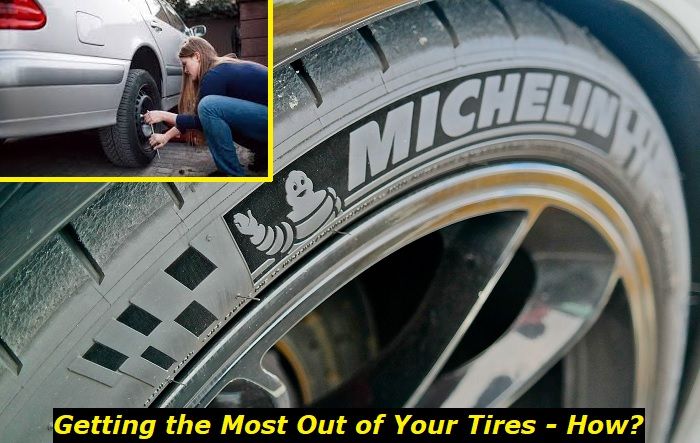If you've recently purchased a car with 200,000 miles on it or are considering doing so, you may be wondering whether it's worth fixing up. After all, cars aren't built to last forever, and the cost of repairs can quickly add up.
Fortunately, there are some things that can help determine if your car is worth investing in or not. In this article, we'll explain what factors to consider when deciding if a high-mileage vehicle is worth fixing up or not. We'll also provide tips for keeping your car running longer and help you decide when it's time to say goodbye to a good old friend. So keep reading to learn more about how best to handle a high-mileage vehicle!

What is the car's average lifespan?
The average lifespan of a car is around 200,000 to 250,000 miles. Beyond this point, the wear and tear on the vehicle start to become more significant, and costly repairs are likely needed. That being said, many cars can last much longer if properly taken care of. So when determining whether or not it's worth fixing a car with 200,000 miles on it, first consider the overall condition of the car.
If your car is well-maintained and you've kept up with regular maintenance, then it may be worth investing in repairs. Some cars may last more than 300,000 miles if they are in good condition. But if the car has been neglected or is full of wear and tear, then repairs may not be worth it, and you'd be better off buying a new car.
What car brands and models are more likely to last more than 200,000 miles?
Some car brands and models are more likely to last longer than others. Generally, Japanese and Korean cars like Honda, Toyota, Nissan, Hyundai, and Kia tend to have higher reliability ratings and longer lifespans. Also, many luxury brands like Mercedes-Benz and Volkswagen can reach high mileage with proper maintenance.
On the other hand, some American cars have shorter lifespans and may not be worth the cost of repairs after 200,000 miles. It's important to do research on the type of car you're considering buying or repairing to determine its average lifespan.
According to Consumer Reports, some of the cars that have a good chance of reaching more than 200,000 miles are the Honda Accord, Honda CR-V, Toyota Land Cruiser, Toyota Camry, Chevrolet Suburban, Ford Expedition, Ford Taurus, Mazda3, Nissan Maxima, and Lexus RX 350.
What are some common repairs that cars need as they age, and how expensive are they on average?
Common repairs for cars with high mileage often include the replacement of major components like the engine and transmission, as well as smaller items such as spark plugs, brakes, suspension parts, and filters. Prices vary depending on the make and model of your car, but a typical repair bill could run anywhere from a few hundred dollars to several thousand. It's especially important to consider the cost of labor when figuring out if it's worth fixing up your car or not.
It's essential to remember that some repairs may be necessary even if you don't have a car with 200,000 miles on it. This can include regular maintenance items like oil changes, tire rotations, and air filter replacements. These smaller repairs may be necessary to keep your car running at peak performance, and they can help avoid larger expenses down the road.
Finally, it's important to consider how much money you are willing to spend on repairing your high-mileage vehicle. If the cost of repairs exceeds the value of the vehicle, then it may not be worth investing in. On the other hand, if you plan on keeping your car for a while and are willing to put money into it, then fixing it up could make sense.
What factors should you consider when making the decision whether or not to repair an old car?
When trying to decide whether or not to repair an old car, there are several factors that should be taken into consideration. These include the sentimental value of the vehicle, your financial situation, and the cost of repairs.
If you have a strong emotional connection with the car - such as it being handed down from a family member - then you may decide to repair it regardless of the cost. If you're in a more financially stable situation, then you can weigh the cost of repairs against the value of the car and make an informed decision from there.
It's also important to consider how reliable the car is and what kind of performance you can expect after repairs are made. A well-maintained car with 200,000 miles on it can often last longer than a brand-new car if it's properly cared for.
Finally, you should also consider the safety aspect of driving an old car. Making sure that brakes and other safety components are in good condition is important to ensure your safety on the road.
Overall, making the decision to repair an old car with 200,000 miles on it is a personal one and should be weighed carefully. Taking all of the factors into consideration will help you make the best decision for your situation.
What other factors should you consider?
Fuel economy is another important factor to consider when deciding whether or not to repair an old car. Older cars tend to have poorer fuel economy than newer models, so investing in repairs could help improve the car's fuel efficiency.
The environment should also be taken into consideration when deciding whether or not to repair an old car. If the vehicle emits a lot of carbon dioxide or other pollutants, investing in repairs could help reduce emissions and improve air quality.
Finally, you should consider the availability of parts for your car. If parts for your vehicle are difficult to find or expensive, then it may not make sense to invest in repairs.
Fixing an old car as a hobby
Some people enjoy fixing up old cars as a hobby and find it rewarding to restore an older car back to its original glory. While there's no denying the satisfaction of putting in the hard work to bring an old car back to life, it's important to keep in mind that there is a financial cost associated with this endeavor.
You can gain valuable skills and knowledge in auto repair, but it's important to take into account the cost of parts, tools, and labor before you begin. If you're not sure that you have the resources to finish the project, then it's probably best not to start.
It's also important to consider the time commitment involved in restoring a car. Depending on the amount of work that needs to be done, the project can take anywhere from a few weeks to several months.
Finally, it's important to think about how much value you'll get out of the project. If you plan on selling the car, it should bring a return that's worth your time and money invested. If you simply want to enjoy the car, then you should factor in how much pleasure you'll get out of it.
Fixing an old car can be a rewarding hobby, but it's important to take all of these factors into consideration before embarking on the project.
Bottom Line
When determining whether or not to repair a car with 200,000 miles on it, it is important to consider the overall condition of the car, the cost of repairs, and your own personal situation. Taking all these factors into consideration will help you make an informed decision that works best for you.
Ultimately, when deciding if it's worth repairing your car, remember to weigh the cost of repairs versus the value and reliability of the vehicle. If all signs point to a reliable and affordable repair, then it could be worth making the investment.
About the authors
The CarAraC research team is composed of seasoned auto mechanics and automotive industry professionals, including individuals with advanced degrees and certifications in their field. Our team members boast prestigious credentials, reflecting their extensive knowledge and skills. These qualifications include: IMI: Institute of the Motor Industry, ASE-Certified Master Automobile Technicians; Coventry University, Graduate of MA in Automotive Journalism; Politecnico di Torino, Italy, MS Automotive Engineering; Ss. Cyril and Methodius University in Skopje, Mechanical University in Skopje; TOC Automotive College; DHA Suffa University, Department of Mechanical Engineering






Add comment